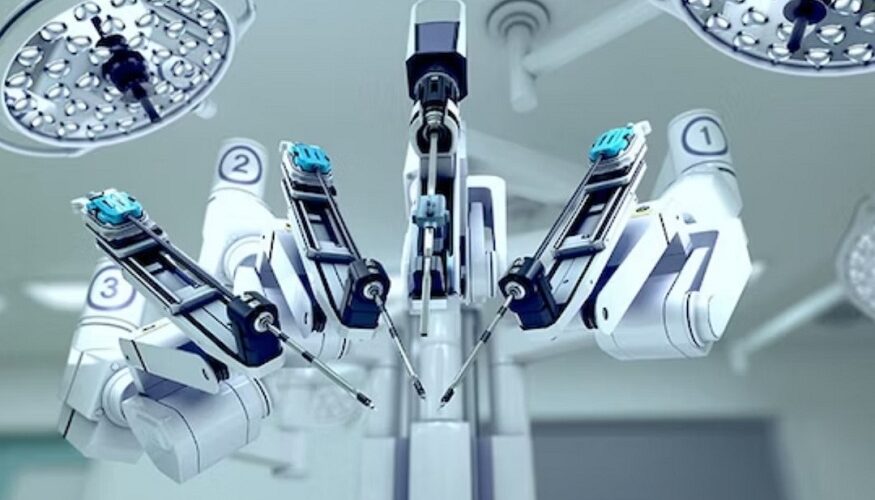General News Blog
My WordPress Blog
My WordPress Blog

MIM Manufacturing by AMT represents something far more profound than mere industrial process—it embodies the quiet reconfiguration of how we think about making things, about the relationship between human labour and material transformation, and about what it means to manufacture in a world increasingly defined by precision and scarcity. In the sterile corridors of Singapore’s industrial estates, where the hum of machinery creates its own peculiar music, a revolution is taking place that few outside the manufacturing sector recognise for what it truly is: a fundamental reimagining of production itself.
There exists a poetry in the transformation of metal powder into precision components, though it is a poetry written in the language of thermodynamics and molecular bonding rather than verse. AMT’s metal injection moulding process begins with what appears almost absurdly simple: fine metal particles mixed with polymer binders, creating what industry technicians call feedstock.
The process unfolds in stages that mirror the deliberate patience of traditional craftsmanship:
•Material Preparation: Metal powders carefully selected and blended with thermoplastic binders
•Injection Moulding: Complex geometries formed through precise temperature and pressure control
•Debinding: The systematic removal of polymer binders through controlled thermal processes
•Sintering: High-temperature consolidation that transforms powder into solid metal
•Finishing: Final dimensional control and surface treatment
What emerges from this process achieves tolerances within ±0.3% of nominal dimensions—a precision that speaks to both technological capability and the human obsession with perfection that drives all meaningful manufacturing.
The statistics that define Singapore’s manufacturing landscape tell a story that extends beyond mere economic data. They reveal a nation that has chosen to position itself not as a producer of commodities, but as a creator of precision:
Singapore’s manufacturing reality:
•Total Manufacturing Output: S$366 billion annually across all sectors
•Precision Engineering Workforce: 180,000 professionals employed
•Productivity Growth Rate: 3.2% annual improvement
•Medical Technology Sector: S$12 billion in annual value
•Electronics Manufacturing: S$90 billion annual contribution
•Population Context: 5.9 million total inhabitants
These figures represent more than economic success; they embody a deliberate strategy to create value through technological sophistication rather than exploiting cheap labour—a choice that carries both promise and peril in our current moment of global economic uncertainty.
In the realm of medical technology, AMT’s powder metallurgy serves not merely industrial function but human need. The surgical instruments, orthodontic brackets, and implantable devices produced through this process become extensions of human capability, tools that enable healing and restoration. The biocompatible materials and surface finishes achievable through metal injection moulding meet standards that acknowledge the profound responsibility of creating objects that enter human bodies.
The automotive industry’s embrace of advanced manufacturing reflects broader questions about mobility, energy consumption, and environmental responsibility. AMT’s capabilities in producing fuel system components, transmission parts, and engine accessories contribute to vehicles that must balance performance with ecological constraint—a tension that defines much of contemporary industrial production.
Singapore’s electronics manufacturing sector generates over S$90 billion annually, creating the material foundation for digital connectivity. The electromagnetic interference shielding, connector components, and thermal management solutions produced through powder injection moulding by AMT enable the devices that increasingly mediate human experience and social organisation.
Quality in manufacturing represents more than mere technical specification—it embodies questions of responsibility, reliability, and trust. AMT’s manufacturing processes operate within frameworks of certification and control that reflect broader social agreements about what constitutes acceptable risk and performance:
• ISO 9001: International quality management standards
• ISO 13485: Medical device quality systems
• AS9100: Aerospace quality requirements
•Statistical Process Control: Comprehensive monitoring and adjustment
• Automated Inspection: Technology-enabled quality assurance
• Material Testing: Rigorous verification of component properties
These systems create what might be called an “architecture of trust”—institutional frameworks that enable the complex interdependencies of modern manufacturing and global supply chains.
The benefits of implementing advanced metal injection moulding extend beyond immediate technical capabilities to encompass broader questions of resource utilisation, environmental impact, and economic sustainability:
•Design Freedom: Complex geometries achievable without traditional manufacturing constraints
•Material Efficiency: Near-net-shape production minimises waste streams
•Production Scalability: Seamless transition from prototype to high-volume manufacturing
•Quality Consistency: Reproducible properties across production runs
•Economic Optimisation: Reduced labour requirements and secondary operations
•Environmental Consideration: Lower material waste and energy consumption patterns
The trajectory of manufacturing in Singapore points toward continued integration of digital technologies, artificial intelligence, and automated systems. Government initiatives supporting Industry 4.0 transformation create conditions for sustained innovation, whilst ongoing research and development investments ensure technological advancement.
Emerging trends in metal injection moulding include the development of new alloy systems, advanced binder technologies, and integration with machine learning algorithms that optimise production parameters in real-time. These developments promise to expand the capabilities of manufacturing processes whilst addressing pressing questions of environmental sustainability and resource efficiency.
Manufacturing matters because it represents one of the few human activities that creates tangible value through the transformation of raw materials into useful objects. In an economy increasingly dominated by financial speculation and digital abstraction, manufacturing maintains a connection to material reality that grounds human activity in the physical world.
The precision engineering capabilities represented by advanced metal injection moulding processes offer one path toward sustainable, high-value manufacturing that can compete globally without exploiting labour or degrading environments. For organisations seeking to navigate the complexities of contemporary manufacturing whilst maintaining ethical and environmental responsibility, understanding and implementing MIM Manufacturing by AMT capabilities represents both opportunity and obligation in equal measure.